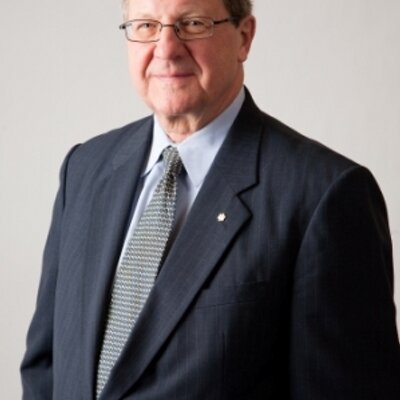Canada News
Time to restrict travel of Myanmar military elite with UN sanctions: Axworthy

Lloyd Axworthy (Photo: Lloyd Axworthy/Twitter)
OTTAWA — Myanmar’s military elite need to have their wings clipped by targeted United Nations travel sanctions in order to discourage the continued ethnic cleansing of Rohingya Muslims, says former foreign affairs minister Lloyd Axworthy.
“We’re talking about targeting specific people, particularly in the military,” said Axworthy, the chair of the Canadian-based World Refugee Council, which is working with the UN to reform the global refugee system.
“A lot of these guys like to fly off to Bangkok and get a new suit or something. I’m not being facetious,” Axworthy said in an interview. “A restricted-travel sanction would be very effective for a lot of the elites in Myanmar.”
Axworthy, a former Liberal foreign affairs minister under Jean Chretien, called on Canada to lead a diplomatic push for sanctions through its diplomats at the UN and in missions across Asia.
The current Liberal government, which has dispatched special envoy Bob Rae and International Development Minister Marie-Claude Bibeau to the region, suggested Thursday it was open to the idea.
“We continue to consider all options at our disposal to press Myanmar on this issue, including potential sanctions,” said Adam Austen, a spokesman for Foreign Affairs Minister Chrystia Freeland.
“The responsibility for ending the ethnic cleansing in Myanmar falls squarely on that country’s military leadership and its civilian government — these are crimes against humanity.”
Axworthy also poured cold water on an agreement announced Thursday between Myanmar and Bangladesh to return the hundreds of thousands of Rohingya who fled a military purge of their northern Rakhine state.
The government of Myanmar announced no details of the plan, which was immediately criticized by Amnesty International. Refugees in Bangladesh have said their homes were set on fire by soldiers and Buddhist mobs; some reported being shot at by security forces.
“It sounds to me like they’re talking about camps, and concentration camps and things of that kind,” Axworthy said.
Austen said Thursday that Canada is trying to learn more about the proposal “to ensure that it is in good faith, feasible, and, most importantly, that refugees will not face further persecution upon their return.”
Canada will spend $35 million over five years to help Bangladesh address the needs of women and girls as the country deals with a massive influx of Rohingya Muslims from Myanmar.
Bibeau announced the new spending — to be directed through United Nations agencies — on Thursday from Bangladesh, where she was getting a first-hand look at the crisis that has seen more than 620,000 Rohingya flee Myanmar since August.
Bibeau visited women and children in Cox’s Bazar, Bangladesh, currently the epicentre of the world’s most pressing humanitarian crisis.
It started when the Myanmar army began what it calls clearance operations in response an attack by a group of Rohingya insurgents, an offensive that many have since characterized as ethnic cleansing.
On Wednesday, the United States did just that, threatening penalties for Myanmar military officers involved in the crackdown.
“We all agree that it’s ethnic cleansing and the action that has been taken by the military is just not acceptable,” Bibeau said Thursday in a conference call with reporters from Bangladesh. Freeland has used the same term to describe the situation in recent weeks.
Axworthy said the fact that the term “ethnic cleansing” is now being widely used only strengthens the case for targeted sanctions against key players in Myanmar.





















